5 Reasons to avoid using Spreadsheets for Manufacturing Operations
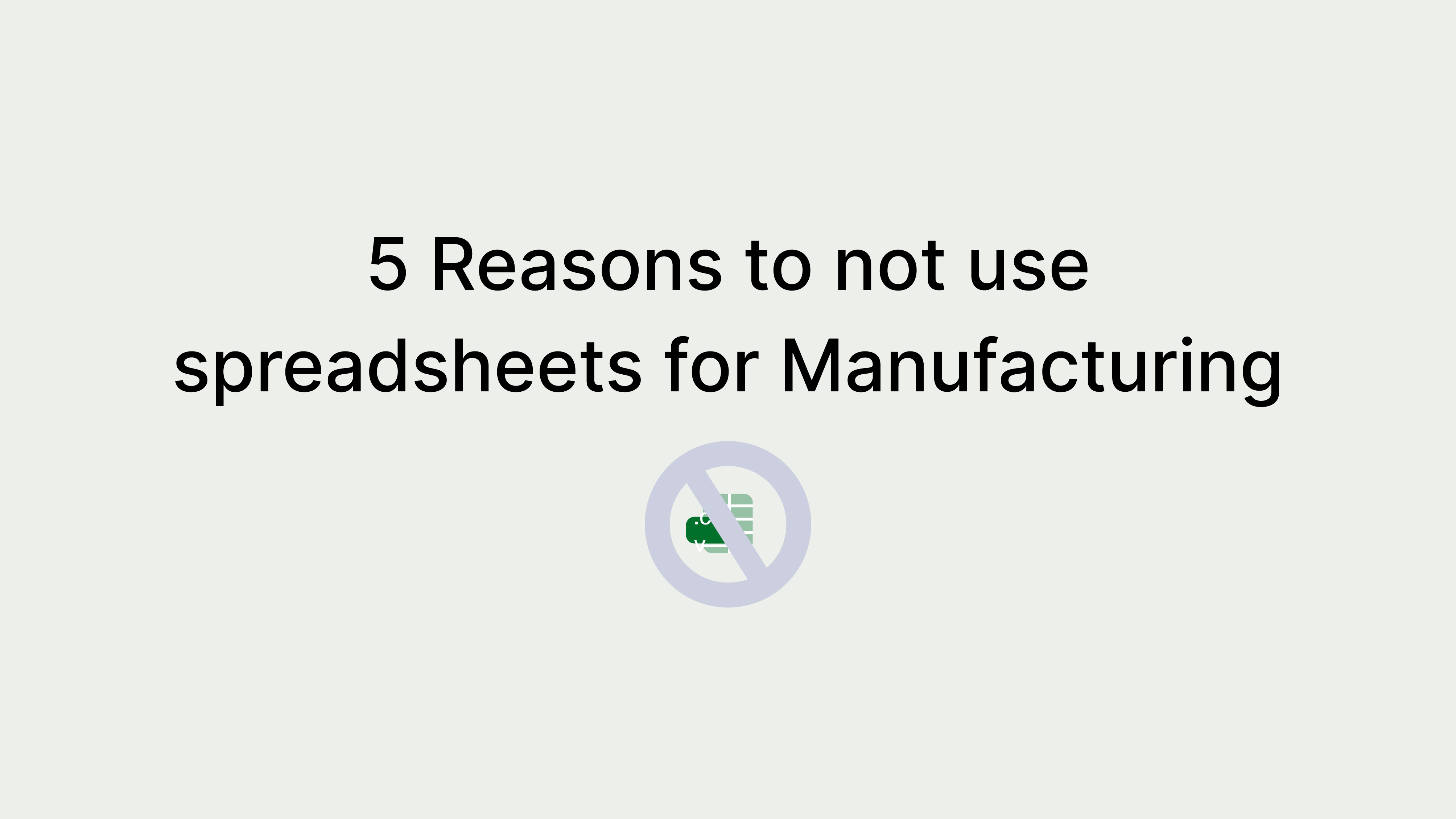
Spreadsheets top 3 benefits
As a digital version of paper accounting worksheets, spreadsheets (whether it is excel or google docs) have been utilized by manufacturing companies for some time now.
There are many benefits to using spreadsheets:
- Ease of use: It is easy to learn (and train your staff on), and it can contain large amounts of data (even in tabular form).
- Calculations: You can also use spreadsheets for some important calculations necessary for your operations.
- Huge adoption: Everyone knows how to use them. We have all been trained since early childhood on how to use all of its major capabilities.
However, once your operations start to scale, and there is an increase in the number of users and the amount of data, and also, increase in the complexity of the relationship between records, the utility of spreadsheets quickly hits the wall: human errors, data consistency issues, and creation and maintenance of scalable related data becomes a significant challenge.
This is where Jestor for manufacturing steps in: as a relational database that requires no coding skills, Jestor is easy to use, train your staff on, and crucially, Jestor’s database will empower you to create data relationships in a scalable way – preventing breakdowns & common data errors.
Below are five major advantages of stop using spreadsheets in your operation:
1. Data integrity.
Specific data fields: Data integrity – the accuracy of data stored in a database, is crucial for scalable operations. Unlike spreadsheets, Jestor will not allow you to store different types of data in the same field – data is designated into proper field types. This will prevent a very common issue with spreadsheets for manufacturing, and ensure data consistency across your organization.
Mandatory fields: make sure that your team will fill out all the required fields when updating or adding information.

2. Data consistency
Roles: Data consistency, the principle that database transactions must change affected data only in allowed ways, is another area that is extremely hard to pull off with spreadsheets. In contrast. In contrast, with Jestor, you can utilize advanced access permissions and user restrictions to prevent needless human errors and data inconsistency.
Gone are the days when one person’s error on a spreadsheet ends up slowing down the entire process and operation until that error is found and solved.
In addition, you will not waste time on correcting duplicate information errors.
For example: let’s say as a manufacturer, you have a list of vendors and representatives for those vendor companies. What if an email address for that vendor rep has been changed? To ensure data consistency, using spreadsheets for manufacturing, you might have to find all relevant fields and update them manually. On Jestor however, you would only need to update a relevant record in the “vendors” table. An admin assistant with access limited to that specific table only, could get it done fast – and even if an error is made, the integrity of the entire dataset would still be preserved.
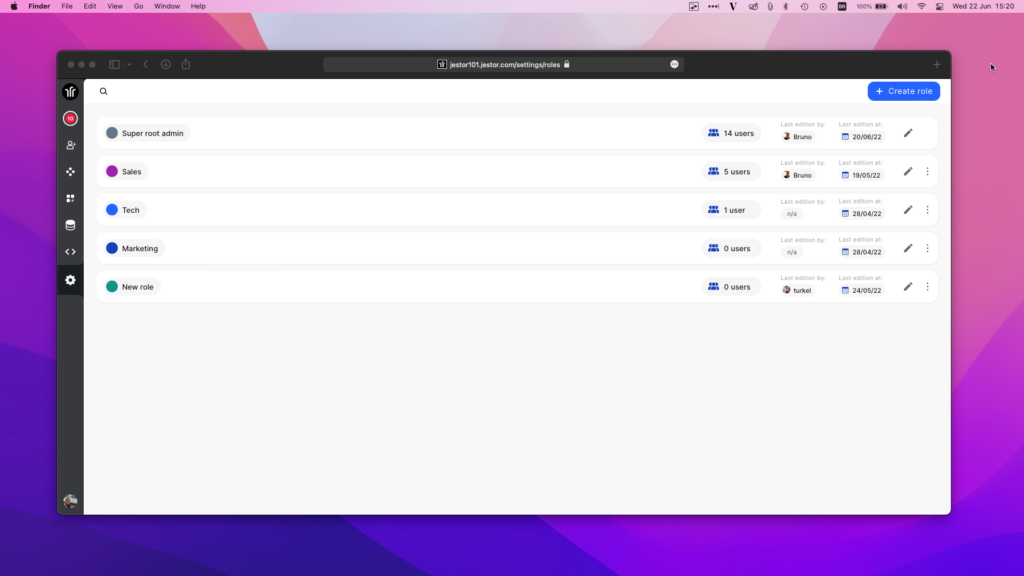
Views and workspaces: You can create different views of the same data and organize it on workspaces – ensuring that they are going to use the same table simultaneously instead of having multiple spreadsheets for manufacturing with updates (ex: “product list v5 – 02-22”).
Relational Database: Connect your data across different workflows and teams guaranteeing that they are always updated and correct. For example, if you have a table “product” and you change the product price, it’ll automatically change this for all teams in your company.
3. Speed & Scalability.
Database: One of the main disadvantages of using spreadsheets for manufacturing is the inability to create relations between data. Sure, one could potentially create tables in the worksheets – using these worksheets to create relations between the tables. The problem is that in spreadsheets, these relations will be logically limited. Instead, in a true relational database like Jestor, relations can be created between tables – increasing the speed with which you can manipulate and work with a dataset.
This increase in speed will allow you to scale your overall operations much faster.
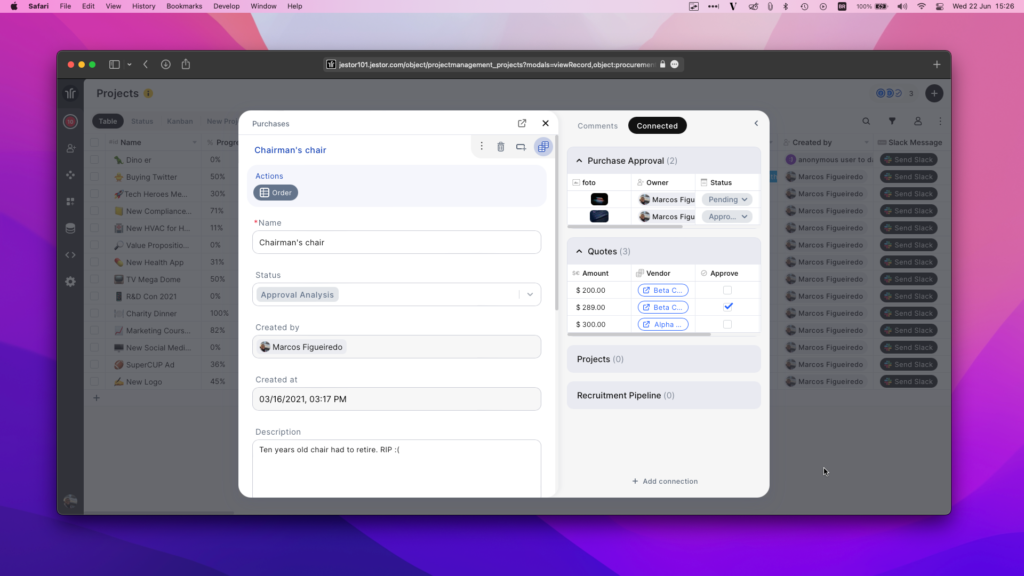
4. Automations.
Automations: Jestor allows you to create your own automations without code. You can create triggers for automations so that your production workflow works smoothly. One can design specific conditions so that once a specific record is updated in a certain way, a certain number of next steps are triggered automatically – saving you further time on manual updates.
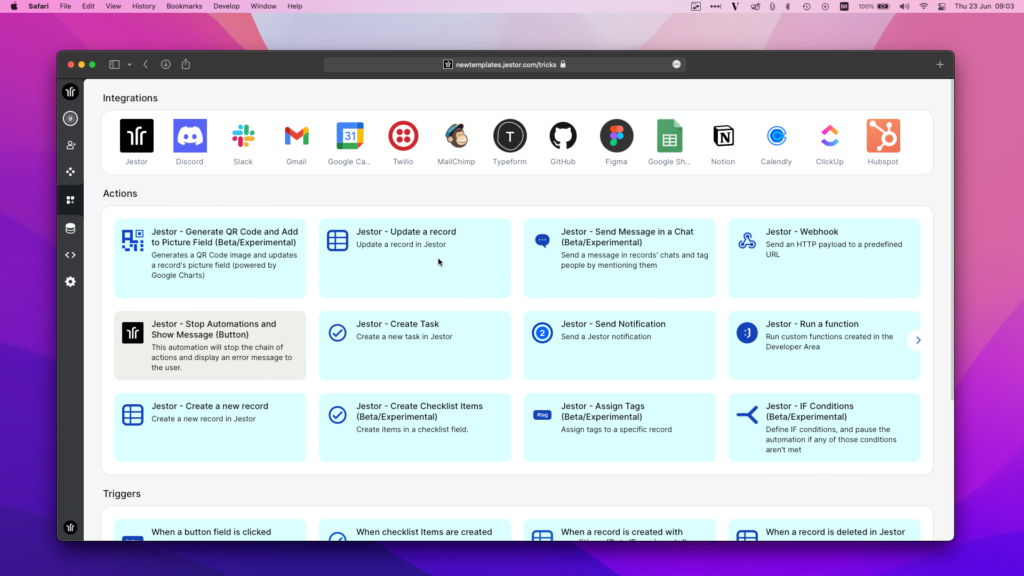
5. Apps for field operations.
Use it on your phone: Apps enable you to easily use your phone to execute processes, take pictures of problems in the production line, scan QR codes of machines and more. On the other hand, spreadsheets are not easy to use on small screens, such as smartphones, or touch screens, such as tablets.
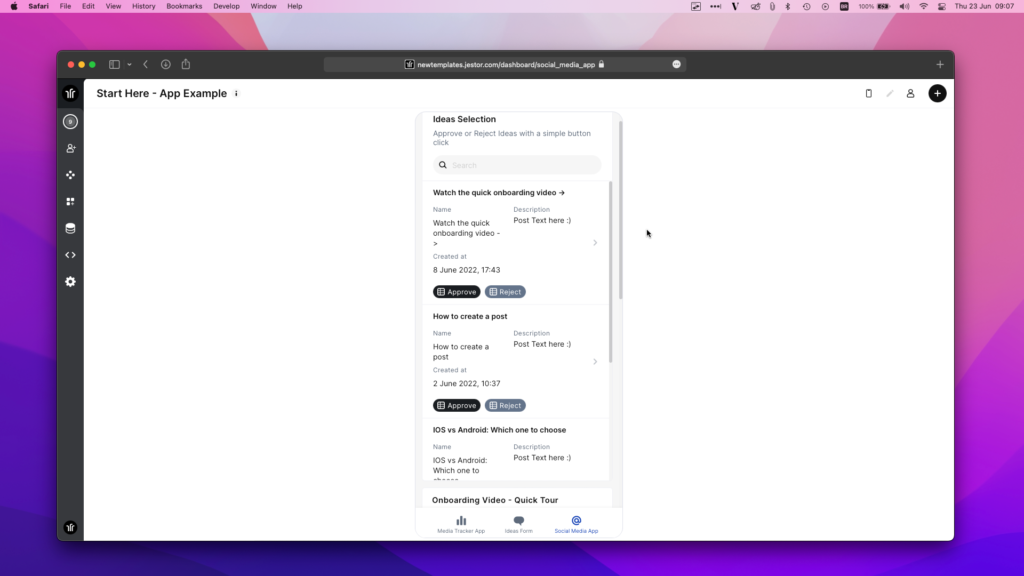
Custom Apps: You can drag and drop blocks to build your own app. If your workflow has an element of field operations, then your staff can use Jestor’s mobile apps to quickly update records tables from remote locations. Consider the alternative: they would either need to try updating the spreadsheet on their phone (a recipe for errors), or take handwritten notes – meaning manual duplicate work of updating records on their work PCs.
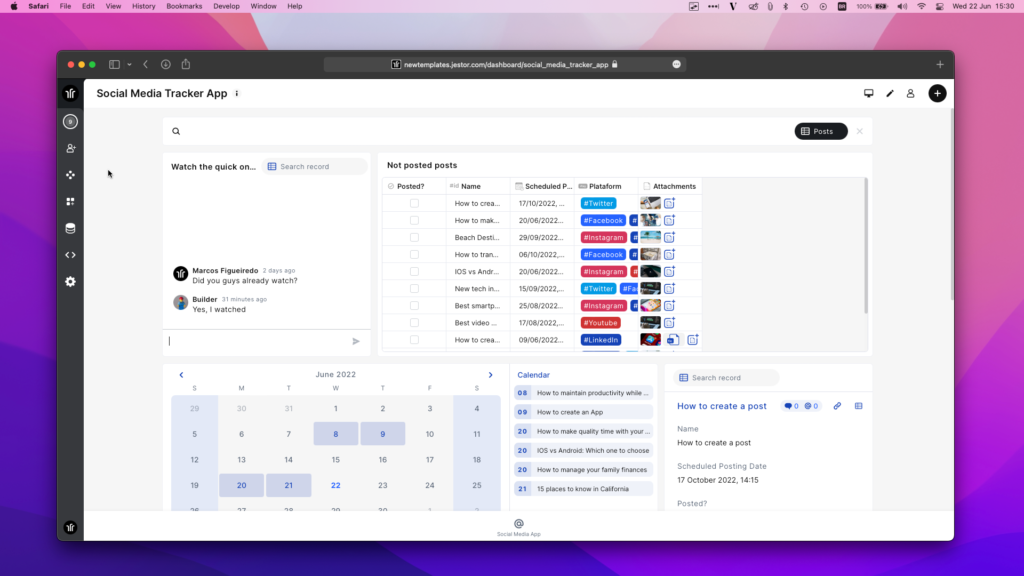
Real-time Dashboards: As you grow and scale, your operations will contain many moving interrelated pieces – all working in concert to produce a specific outcome. What if you want a high-level overview of your entire operations? With apps, you will get to experience a bird’s-eye view of your operational KPIs. Data can be pulled from tables to create sophisticated charts and indicators to satisfy your craving for data analytics – something that is extremely cumbersome to create in simple spreadsheets.
Workflows: Create workflows to ensure that your team will follow the necessary steps to complete a job.
Ultimately then, Jestor allows you to scale and speed up your operations free of common errors – saving you enormous time with advanced automations, and empowering you to have a holistic view of entire operations with Jestor apps.

